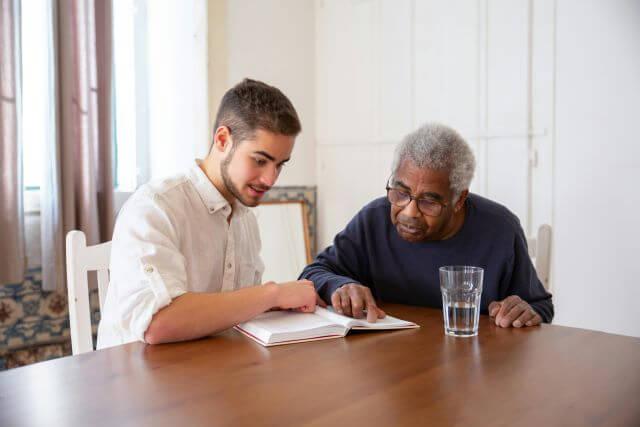The best medical IDs for the elderly
If you have an older loved one, knowing how to find the best medical IDs for the elderly may feel a little daunting.

Why not start with this article, where we’ll discuss which conditions are more likely to affect older people and which medical wristbands suit them best?
We’ll also take a look at the different types of medical ID and discover why they are a valuable tool for helping your loved one get the right care in an emergency.
Which health conditions are more likely to affect the elderly?
According to the Australian Institute of Health and Welfare (AIHW), 80% of people aged 65 and over have at least one chronic health condition and 28% had three or more of these.
The Older Australians section on their website lists these as the conditions most likely to affect the elderly and offers the following information:
- Cardiovascular disease — This term covers a range of conditions that include coronary heart disease and stroke. Heart disease is the main reason why older people are admitted to hospital.
- Arthritis and other musculoskeletal conditions — Arthritis is the most common chronic condition affecting older people, with almost half living with either osteoarthritis or rheumatoid arthritis.
- Chronic kidney disease — You are more at risk of this disease the older you get, and sufferers are likely to have a high number of hospital visits. In the later stages of the disease, people may need dialysis or even a transplant.
- Respiratory conditions — This category includes a number of different diseases, including asthma and chronic obstructive pulmonary disease (COPD), which means people have difficulty breathing and carrying out day-to-day activities.
- Dementia — This is an umbrella term for conditions that involve cognitive decline and includes Alzheimer’s disease, the most common form of dementia. It can have a far-reaching effect on the lives of sufferers and their families.
- Diabetes — Diabetes occurs when there are high levels of glucose (also known as blood sugar) in the blood. This is because the body can’t produce insulin or can’t use it properly. The number of older people with diabetes has increased two-fold over the last two decades, making it a major concern for the elderly population.
- Hearing loss — Around a third of older Australians have hearing loss, which can have implications for communication and independent living.
- Chronic eye conditions — Older people may suffer from relatively minor issues with their eyes, such as long-sightedness, or conditions that affect their day-to-day life, such as cataracts or blindness.
- Chronic pain — This is pain that persists after the usual healing period following an injury or illness. Chronic pain can mean that older people are more at risk of falls and reduced mobility.
Why are medical IDs useful?
If you care for an elderly person, chances are they may be living with one or more of the conditions described above.

Medical IDs for the elderly can be a simple yet effective way to ensure that an older person gets the help they need in the event of an emergency.
They may take the form of pre-printed medical wristbands that show the wearer’s medical condition, such as diabetes or asthma.
You can also buy customisable medical wristbands, which can be personalised with the information of your choice, such as the name of your loved one’s medical condition, their medication and emergency contact details.
This way, if your loved one has a health episode and is unable to communicate for themselves, their caregivers can quickly find out their medical background and offer the most appropriate treatment. This can be especially useful if an elderly person has a condition that affects their communication, such as hearing loss or dementia.
If your loved one doesn’t like the idea of wearing a medical bracelet, you can also choose from a number of other options, including necklaces and wallet cards that can contain valuable information about the wearer’s health condition.
A small step that makes a huge difference
Getting your loved one a medical ID is a small step that can make a huge difference to their life.
Take a look at our extensive range of medical IDs for the elderly and select one that suits your relative’s health needs.
We offer both pre-printed and customisable medical wristbands and other types of alerts, so you’ll be sure to find something that suits your loved one perfectly.
For older people with a health condition, wearing a medical ID can ensure they get the right treatment at the right time — and bring peace of mind for both you and them.

